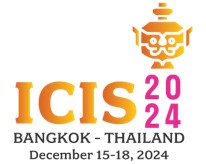Loading...
Paper Number
2275
Paper Type
Complete
Abstract
Online health communities (OHCs) are becoming integrated into people’s lives with unprecedented breadth and depth. In terms of the role of OHCs, professional health knowledge sharing (PHKS) with the public is a useful way to improve residents’ health literacy and alleviate the shortage of medical resources. Considering the importance and persistence needs of PHKS, it is essential to explore effective PHKS incentives for physicians in OHCs, and especially how such behavior can be incentive to sustain. This paper therefore mainly explores the effects of small monetary incentives on PHKS in OHCs with two field experiments. Based on the theories of habituation and habit formation, we proved the validity of small monetary incentives in the context of PHKS, and identified the effect of habituation during repeated incentives. Moreover, based on habituation and habit formation we also explored heterogeneity of repeated incentives on physicians from areas with different medical resources.
Recommended Citation
Guo, Shanshan; Chen, Yun; and DANG, Yuanyuan, "Small Monetary Incentives on Professional Health Knowledge Sharing in an Online Health Community: A Longitudinal Study with Two Field Experiments" (2024). ICIS 2024 Proceedings. 2.
https://aisel.aisnet.org/icis2024/ishealthcare/ishealthcare/2
Small Monetary Incentives on Professional Health Knowledge Sharing in an Online Health Community: A Longitudinal Study with Two Field Experiments
Online health communities (OHCs) are becoming integrated into people’s lives with unprecedented breadth and depth. In terms of the role of OHCs, professional health knowledge sharing (PHKS) with the public is a useful way to improve residents’ health literacy and alleviate the shortage of medical resources. Considering the importance and persistence needs of PHKS, it is essential to explore effective PHKS incentives for physicians in OHCs, and especially how such behavior can be incentive to sustain. This paper therefore mainly explores the effects of small monetary incentives on PHKS in OHCs with two field experiments. Based on the theories of habituation and habit formation, we proved the validity of small monetary incentives in the context of PHKS, and identified the effect of habituation during repeated incentives. Moreover, based on habituation and habit formation we also explored heterogeneity of repeated incentives on physicians from areas with different medical resources.
When commenting on articles, please be friendly, welcoming, respectful and abide by the AIS eLibrary Discussion Thread Code of Conduct posted here.



Comments
16-HealthCare